It's all about the classical music composers and their works from the last 400 years and much more about music. Hier erfahren Sie alles über die klassischen Komponisten und ihre Meisterwerke der letzten vierhundert Jahre und vieles mehr über Klassische Musik.
Total Pageviews
Sunday, May 12, 2024
Saturday, May 11, 2024
'Don’t Dream It’s Over' (CROWDED HOUSE) Song Cover by The HSCC
Franz Lehar – "Gold und Silber" / "Gold and Silver" Walzer – Hungarian S...
Friday, May 10, 2024
Erik SATIE - Gymnopedies 1, 2, 3 (60 min)
Best Quotes About Flutes and Flutists
by Emily F. Hogstad, Interlude
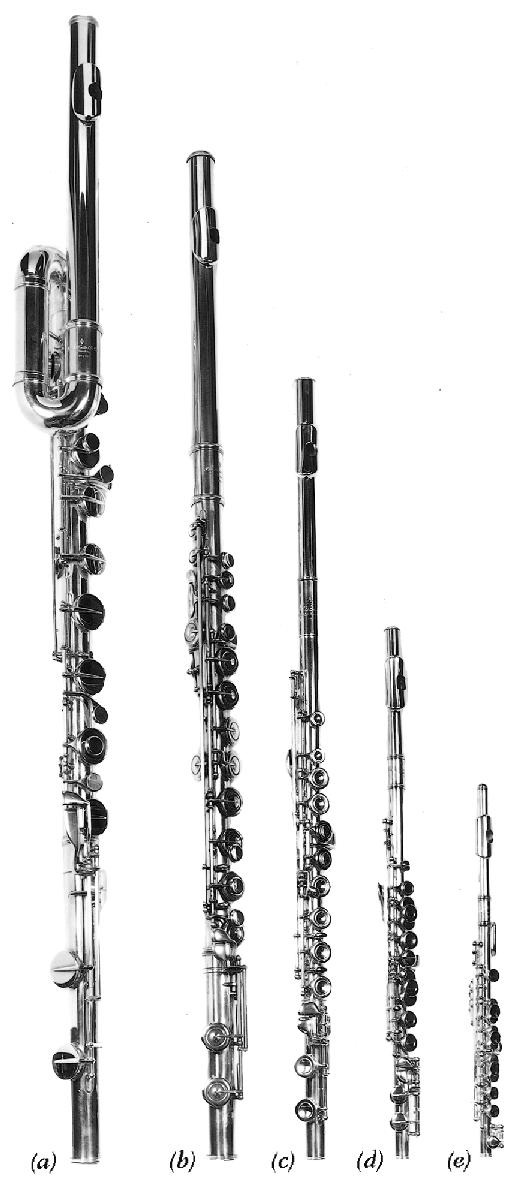
Modern orchestral flutes by Rudall, Carte & Co.: (a) bass in C; (b) alto in G; (c) concert in C; (d) treble in G; (e) piccolo in C
To celebrate the flute, we’ve assembled some famous quotes about both the flute and flutists. Enjoy!
The flute is not an instrument that has a good moral effect – it is too exciting.
– Aristotle, Politics
I practice in the same way as a singer or a violin player. When they sing, singers practice to try and get it like it is in the concert. Violin players certainly do that. String players certainly play like it is on the Carnegie Hall stage all the time, and that’s what I do. There’s a lot of wind players who play everything sort of mezzo forte, or piano, and they think when they get to the concert, they’ll give it the works. Then, they get to the concert, they find the works are not happening because they didn’t practice the works. You have to practice doing it, and getting things in focus.
– Flutist James Galway in an interview with Bruce Duffie

Mozart’s The Magic Flute © The MET
What’s even worse than a flute? – Two flutes!
– Composer Wolfgang Amadeus Mozart (possibly apocryphal, but too good and too famous to not include)
God picks up the reed-flute world and blows. Each note is a need coming through one of us, a passion, a longing pain. Remember the lips where the wind-breath originated, and let your note be clear. Don’t try to end it. Be your note.
– Poet Rumi
I also always carry my flute. It’s very important for me to try to relax when I’m traveling, and playing my flute helps me to unwind.
– Singer Andrea Bocelli, on Facebook
When it sounds too breathy, as if it has too much air, then it’s a question of the air column. It means that the player is not sending all the air in the good direction.
– Flutist Jean-Pierre Rampal, interview with the Washington Post
After I came out of surgery – I was in the hospital for five weeks – I found that I gravitated toward very gentle sounds: chant music, solo bamboo flute sounds, a laid-back record of my own called ‘Inside.’ And the music became a very real part of my recovery process.
– Flutist Paul Horn
The tonality of the flute almost has a mystic element to me.
– Film and television composer Ramin Djawadi
It’s a lot of work. You gotta practice for a long time to get it right… I really loved sitting in a symphony and sitting in an ensemble and playing music, and I would get goosebumps when we would play pieces.
– Singer, rapper, and flutist Lizzo hink of the air column as a part of your body, like a finger, which you can direct up or down very easily.
– Flutist Jean-Pierre Rampal, Flute Talk Magazine
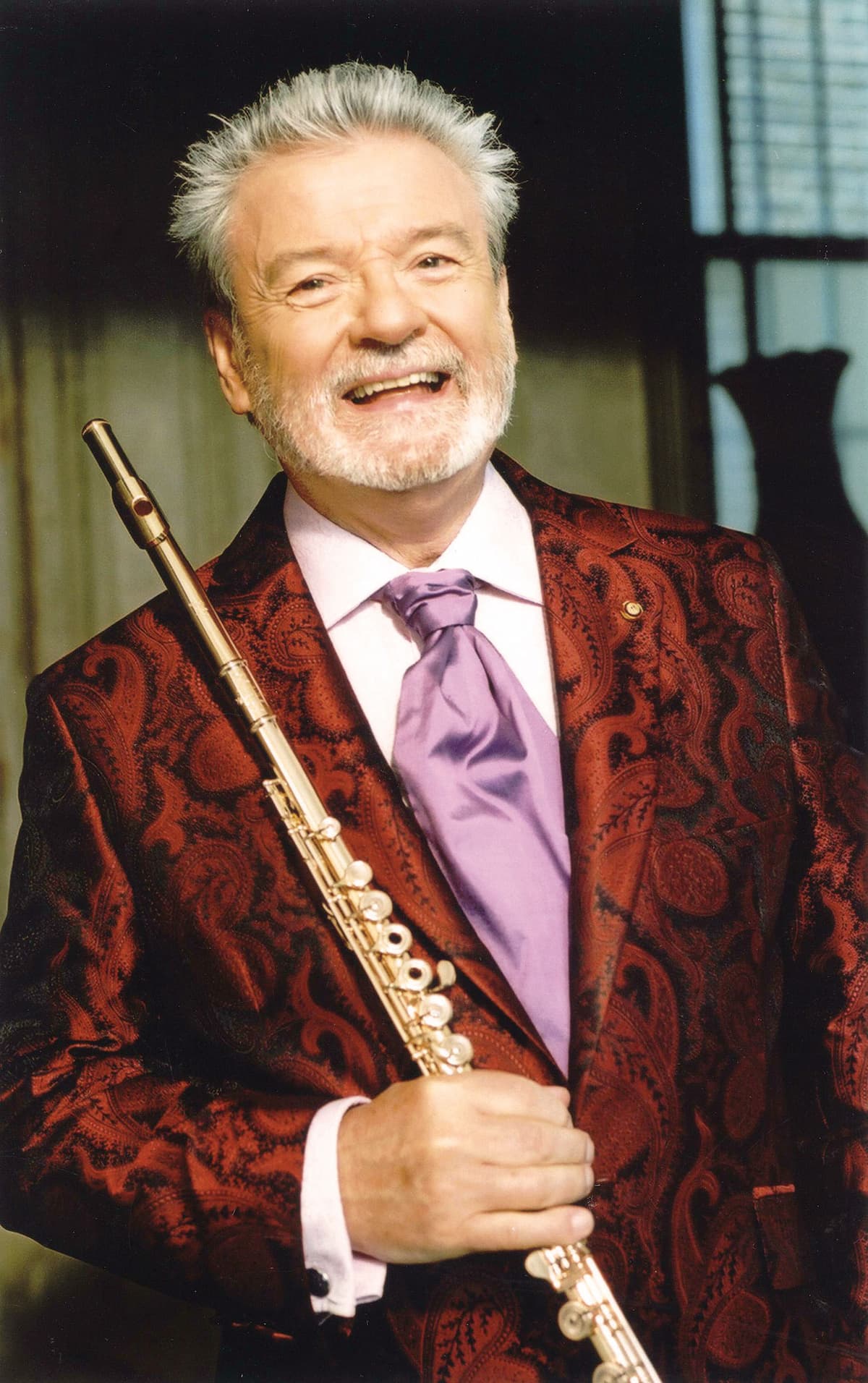
Sir James Galway is known as the “Man with the Golden Flute”
Traveling a lot on airplanes, and spending a lot of time in hotels, the whole mucus gets dried out. So, I have a special ointment which you can buy from most chemists, and you just apply it in your nose and on your lips. A lot of people use this ‘Chap Stick’, but I never use it. That’s death for flute players because you put it on, and the thing is hard, and as you rub it on your lips, it tears a bit of skin off. It’s better to get a cream that’s soft, and apply it with the finger. You should do it after you’re finished playing the flute.
– Flutist James Galway in an interview with Bruce Duffie
It must be a passion – as important as the water you drink or the bread you eat.
My technical strengths come from many hours of practicing and listening. My weaknesses are like weeds. They keep reappearing. So I need to keep at them, to clear the garden so that the flowers can grow. I think this is true of all of us, in regular life too.
– Orchestral flutist Paula Robison, interview with the website Musician in Progress
I have always been in love with the flute—from the first moment I decided I wanted to learn to play when I was nine. I think many of us live in the world of music simply because this magical instrument called to us, and we had to play… I know this is true for me.
– Orchestral flutist Jeanne Baxtresser on her website
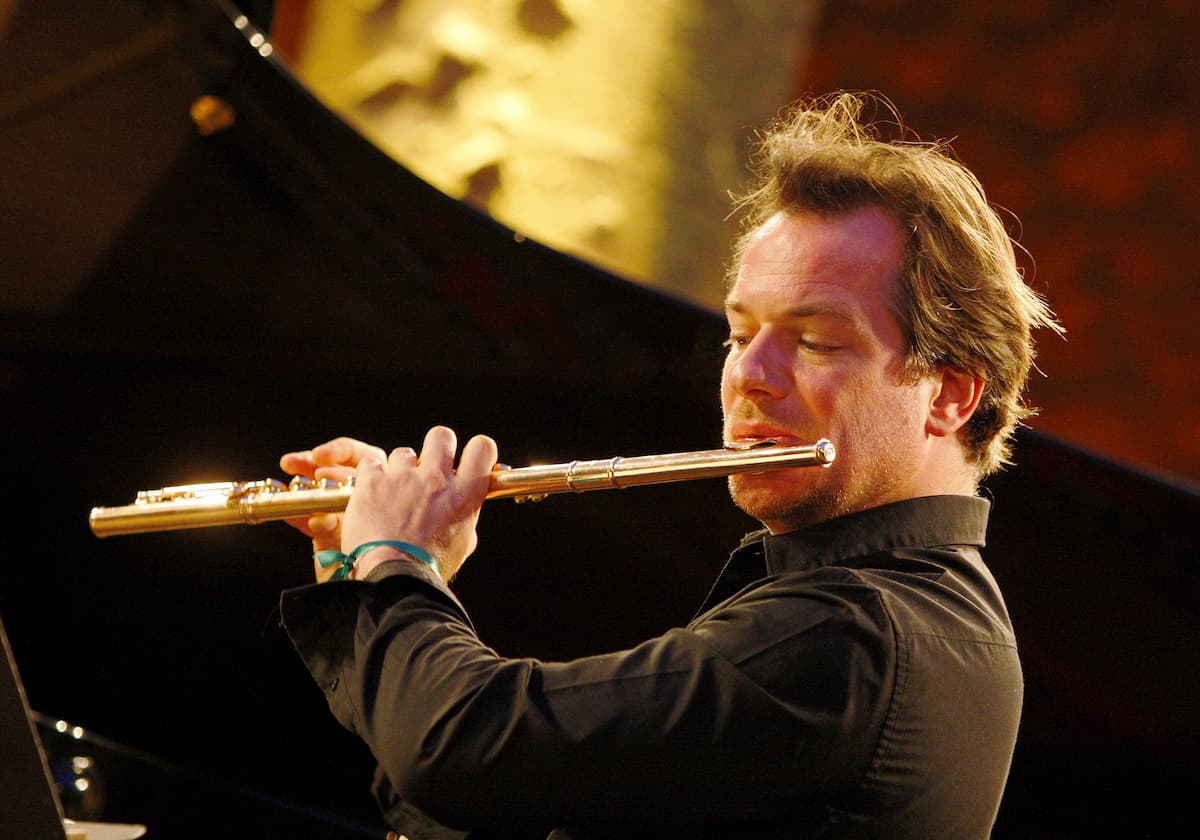
Emmanuel Pahud
I try to just deliver the best possible performance of what the composer has put in their music, and find the intentions of the composer between the lines of the score. It’s kind of like an actor who plays Shakespeare today; we’re trying to rediscover the meaning of these great works and find the best way to project this so that it resonates with a modern audience.
– Orchestral flutist Emmanuel Pahud, interview with the Australian Chamber Orchestra
It’s interesting having musicians that don’t all have the same experiences musically. They have a broad awareness of different kinds of music, but their comfort zone is not the same as the guy standing next to them. It typically means they may be a little out of their comfort zone when learning new material. But that’s part of the challenge. I have that same challenge if I play on somebody else’s record as a guest. I have to find a way to honor their style of music, even if it’s something I’m not particularly fond of. I must try to find a way to get inside their head and inside that music. Be able to make something that is compatible. That is a useful challenge for any musician to rise to. To find new contexts in which to play.
– Musician Ian Anderson, interview with V. W. Music
At some point, I had to realize that my pleasure and joy in doing the job could be enhanced if I became more accepting of my fallibilities. We strive for perfection in the practice room, but a human being sits in the chair in performance. That humanity is what makes live performance so compelling.
– Orchestral flutist Jeanne Baxtresser, interview with Don Bailey
I do not consider myself as having mastered the flute, but I get a real kick out of trying.
– Flutist James Galway
Classical Music About Mothers
by Emily E. Hogstadt, Interlude

© friendsofchambermusic.ca
Today we’re looking at twenty pieces of classical music that pay tribute to motherhood, from song cycles written from a mother’s point of view to references to the Virgin Mary and Mother Goose, to the laments of mothers who have lost their children, to bittersweet musical tributes of children who have lost their mothers.
Frauen-Liebe und Leben by Robert Schumann (1840)
In 1840 Robert Schumann was preoccupied by domestic thoughts. In September he was able to marry his longtime love, Clara Wieck Schumann. Her father had done everything he could to discourage their union but was ultimately unsuccessful in preventing the marriage.
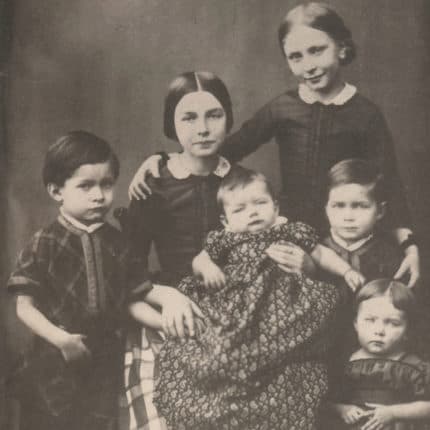
The Schumann children
It was against this backdrop that he wrote Frauen-Liebe und Leben (“A Woman’s Life and Love”). It’s a cycle of eight songs that follows a narrator’s journey of falling in love, getting married, and having a baby.
The seventh song includes the following lines:
Only a mother knows
What it means to love and be happy.
These lyrics are more than a touch ironic, given that Clara Schumann was one of the best pianists of her generation, and would become deeply unhappy when motherhood got in the way of her career.
Songs My Mother Taught Me by Antonín Dvořák (1880)
This song is the fourth in a set of seven called Gypsy Songs, which contains lyrics both in German and Czech.
The narrator sings of songs that have been passed down through generations, and the bittersweet joys that come from passing them to young children.
The song has arguably become more famous in its instrumental transcriptions, such as this one for violin.
Mother Goose March by John Philip Sousa (1883)
Mother Hubbard March by John Philip Sousa (1885)
John Philip Sousa wrote two nursery rhyme-themed marches. Both are charming, albeit not particularly famous.
Once when he was on tour, Sousa was unimpressed by an audience’s lukewarm response. He told his musicians, “If they’re going to act like children, we’ll give them children’s music!” and ordered them to take out the Mother Goose March.
That incident became an in-joke in the band.
“Mamma quel vino e generoso” from Cavalleria Rusticana by Pietro Mascagni
In this opera, a villager named Turiddu sleeps with his former fiancée Lola. Unfortunately, Lola is now married to a carter named Alfio.
When he finds out, Alfio challenges Turiddu to a duel. As he accepts the challenge, Turiddu bites Alfio’s ear until it bleeds, which signals that it will be a fight to the death.
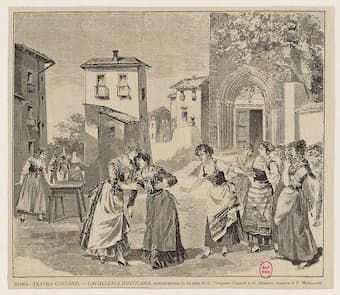
Cavalleria rusticana at the opera’s world premiere,
17 May 1890, Teatro Costanzi, Rome
Turiddu speaks with his mother and begs her that if he does not return, she treats his secondary love interest – a woman named Santuzza – kindly.
The final words to this aria are famous: “One kiss, mother! One more kiss! – Farewell!” Turiddu leaves to meet his fate, and his mother and Santuzza embrace. As you can imagine, Turiddu does not survive the duel.
Empress of Night by Amy Beach (1891)
This work by American composer Amy Beach was a family affair. The text was written by her husband two years after their marriage, and it was dedicated to her mother.
O Mother of God Vigilantly Praying by Sergei Rachmaninoff (1893)
In this work, Rachmaninoff was inspired by one of the most famous mothers of all time: Mary the mother of Jesus.
This stunning work for a capella chorus is an homage to the musical traditions of the Russian Orthodox Church, which always loomed large in Rachmaninoff’s creative consciousness.
Songs My Mother Taught Me by Charles Ives (1895)
In 1895, American composer Charles Ives set an English translation of the same poem that Dvořák had set fifteen years earlier.
This setting features a quiet piano accompaniment with a slowly rocking rhythm.
Muttertändelei by Richard Strauss (1899)
Translated into English, the title of this song is “Mother Chatter.”
The narrator is an excited new mother chattering to everyone in earshot about her perfect brand-new baby.
She sings:
Just look at my beautiful child,
With long, golden locks,
Blue eyes and rosy cheeks
People, do you also have one like it?
People, no you have not!
The work could be inspired by Strauss’s muse and soprano wife Pauline, who gave birth to their first and only child in 1897.
Sinfonia Domestica by Richard Strauss (1903)
The Sinfonia Domestica is an over-the-top celebration of domesticity.
Instead of composing a symphonic poem about a character from literature or mythology, here Richard Strauss writes one based solely on the various daily goings-on in his own household.
All sorts of homey activities are portrayed: a walk outdoors with their son, a cozy family dinner, spousal arguments…and, after he and his wife put their baby to sleep for the night, an eye-widingly graphic love scene!
Wenn dein Mütterlein from Kindertotenlieder by Gustav Mahler (1904)
Kindertodtenlieder translated into English means “Songs on the Death of Children.”
The lyrics came from a set of 428 poems written by nineteenth-century poet Friedrich Rückert, who lost his children to scarlet fever and chronicled his grief in verse.
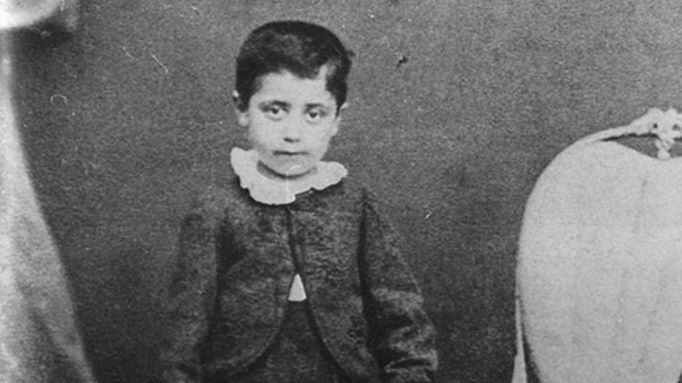
Gustav Mahler as a child
As a child, Mahler witnessed many of his siblings dying young, and he found himself drawn to this material. His setting of “Wenn dein Mütterlein” (“When Your Mama”) is especially heartbreaking:
When your mama
steps in through the door
and I turn my head
to see her,
on her face
my gaze does not first fall,
but at the place
nearer the doorstep,
there, where your
dear little face would be,
when you with bright joy
would step inside,
as you used to, my little daughter.
Tragically, three years after Mahler finished this work, one of his own daughters would die of scarlet fever.
“When I really lost my daughter, I could not have written these songs anymore,” he confessed to a friend.
About Mother by Josef Suk (1907)
Josef Suk wrote these sweet piano pieces for his children about their mother. (In a callback to an earlier piece on this list, that mother was none other than Antonín Dvořák’s daughter!)
There are flashes of Bohemian or Dvořákian characters here, as interpreted by a younger composer from a new generation.
Ma Mere l’Oye by Maurice Ravel (1910)
The Ma Mere l’Oye (or Mother Goose) suite was originally composed as a simple piano duet for two of his friends’ children.
One of those children later recalled, “Ravel used to tell me marvelous stories. I would sit on his knee and he would begin, ‘once upon a time…’ And it was Laideronette, Beauty and the Beast, and the adventures of a poor mouse that he had made up for me.”
Turns out Maurice Ravel was a bit of a mother hen himself!
The work was so enchanting that Ravel soon orchestrated it, to great effect.
Two Musical Relics of my Mother by Percy Grainger (1905-12)
Australian composer Percy Grainger and his mother Rose had a famously (some would say infamously) close relationship. When he was a boy, his father cheated on his mother, giving her syphilis. Understandably, there were tensions at home.
Percy wrote his first works for his mother, and, as he was homeschooled, she was his main teacher.
Rose turned into her son’s personal and professional manager, and they lived together until her death in 1922.
Senza Mamma from Suor Angelica by Giacomo Puccini (1917)
Puccini’s one-act opera Suor Angelica is set in a convent. Three nuns discuss their dreams. Sister Angelica confesses that she dreams of being contacted by her wealthy noble family, whom she has not heard from in seven years.
A visitor arrives. It’s Angelica’s aunt, who wants her to sign a piece of paper. Once she does, Angelica’s claim to her inheritance will be renounced.
Angelica reveals that she had an illegitimate son seven years ago. Her aunt coldly informs her that the child has been dead for two years.
Angelica hallucinates her son and drinks poison. She realizes too late that she is dying by suicide, a mortal sin that will separate her from her son in the afterlife.
In desperation, she calls upon the Virgin Mary to send her a miracle. Just before she dies, she sees her son running toward her to hug her.
This stunning aria gives full voice to Angelica’s motherly heartbreak.
Mother and Child by John Ireland (1918)
English composer John Ireland wrote this set of eight brief songs based on nursery song poems by author Christina Rossetti.
The final poem is a gut punch; it describes flowers in a garland “for death”, presumably a funeral arrangement.
Cradle Song of the Lonely Mother by Amy Beach (1924)
Composer Amy Beach also addressed a similar topic.
In this somber cradle song, the gentle rocking rhythms and eerie chromaticism suggest that a mother is remembering a child who has died.
It’s a heartbreaking reminder of how the loss of a child was a formative life experience for so many mothers throughout the history of classical music.
Tiny’s Song from Paul Bunyan by Benjamin Britten (1941)
In 1941 British composer Benjamin Britten wrote an operetta tackling one of the most American of characters: mythical lumberjack Paul Bunyan.
In the operetta, the massive Paul Bunyan (reportedly as tall as the Empire State Building) finds a wife as tall as he is, and she gives birth to a woman they name Tiny.
Mrs. Bunyan isn’t happy at home, so she leaves the household and eventually dies.
When Tiny arrives in camp, the men are attracted to her, since she is the only woman. She explains she is not in the mood for love; she is still mourning her mother.
Lullaby, From Jewish Folk Poetry by Dmitri Shostakovich (1948)
This gloriously off-kilter lullaby is a deeply moving work by Shostakovich.
It comes from his song cycle From Jewish Folk Poetry. He said that he was intrigued by the idea of “a jolly melody on sad intonations.”
The words are tragic; the mother is singing to her child about its father, who has been imprisoned by the Tsar in Siberia.
“Sleep, my dear, whilst no sleep comes to me,” the mother implores her son.
Two Hymns to the Mother of God by John Tavener (1985)
English composer John Tavener wrote a simple introduction in the score to his Two Hymns to the Mother of God:
These Two Hymns were written in memory of my mother. The first is for double choir and is a setting of a text from the Liturgy of St Basil. It speaks of the almost cosmic power attributed to the Mother of God by the Orthodox Church. The second comes from the Vigil Service of the Dormition (of falling asleep) of the Mother of God. She invites the apostles to gather from the end of the earth to bury her body in Gethsemane and asks her to receive her spirit.